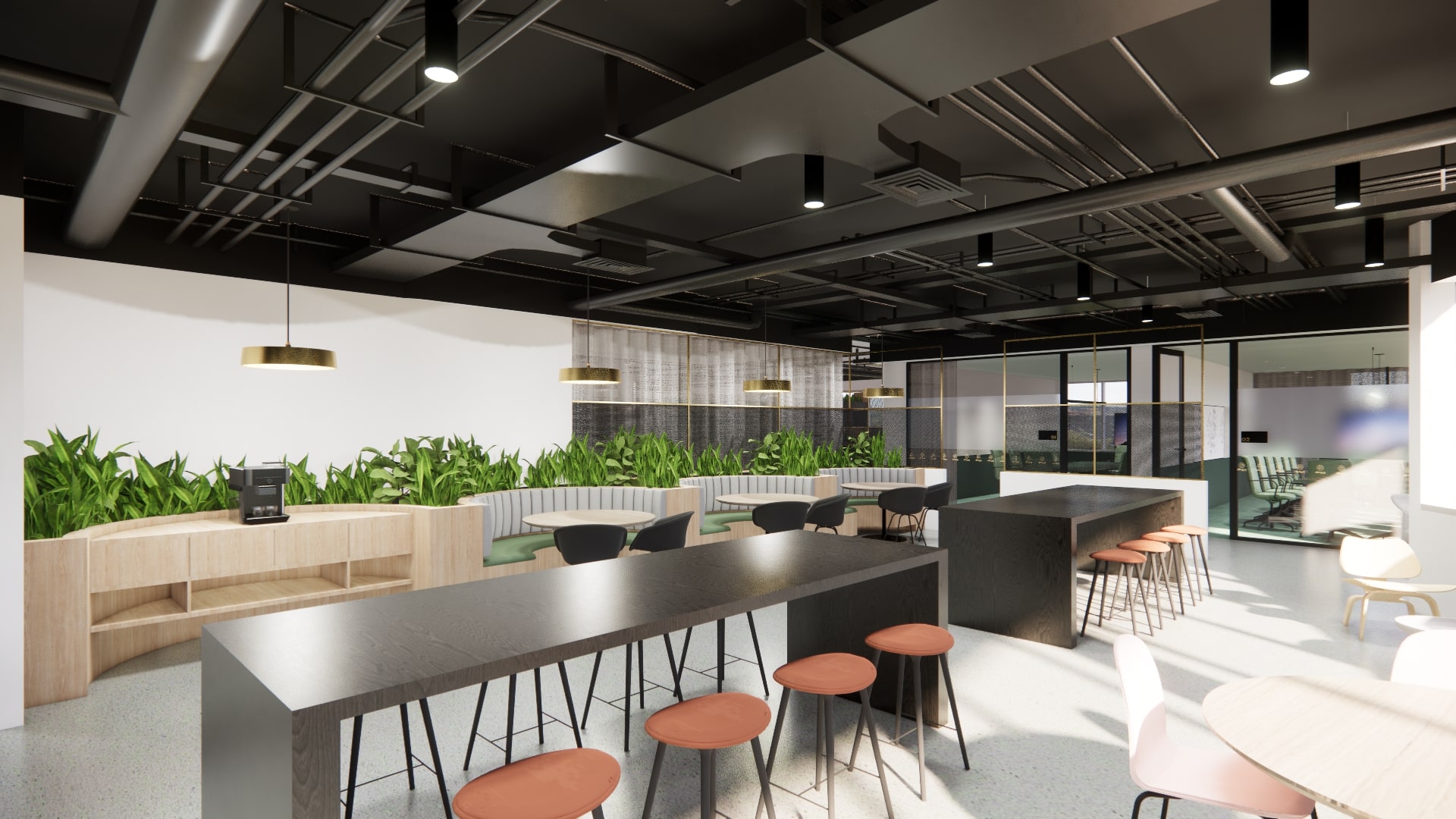The future of the workplace.
Talking about the future of workplace, it’s very easy to consider recent trends or popular movement, and perhaps extrapolate on from those to predict the future.
Consideration of the future for workplace cannot merely be trend or popularity based. It needs to consider the need or desire for change, rather fall to popular thought or whim. So focussing on the need and desire for change, we know the biggest drivers for workplace evolution centre around the nature of the work we are now doing, the changing demographic of our colleagues and employees, the desire to attract the newest and best talent, and retain these people in a never ending war for talent, and globalisation of our markets and businesses.
As a result of these drivers, we are seeing several responses both in built form and culturally speaking, in an attempt to provide the right physical and psychological environment to meet these needs.
Flexibility
We know from research around the tech sector, productivity and improved staff engagement occurs when team members are in close proximity. So flexibility in the workplace is about provide a physical environment that allows staff to shift to be alongside their project team or connect with a remote or field based colleague.
Within the workplace, this is supported by modular, and movable desking, project hubs that an expand and contract, and proximity to a collaborative zone to support short term working. While the physical form of the space needs malleability, the technology supporting this needs to be as dynamic in-kind.
Technology
Improvement in technology is a by-product of workplaces pushing the boundaries of the tethered desking scenario. True flexibility and the collaborative requirement is supported by integrated, highly specified and wireless technology solutions..
Automation and ‘ease of use’ are general overarching desires which prompt innovation in this field; this ease of use too can assist by bridging the gap where demographically divide of an organisation is broad.
Collaboration
Knowledge sharing is now recognised as a key purpose of the centralised workplace.
Remote working has had its advantages in providing breath and span of a team, however has conversely created silos in individuals. Bringing the team together to share ideas, problem solve and socialise is key to generation and growth of the organisation, as well as to foster team connections and culture. More than ever, with staff having the ability to be mobile, and potentially distant from the central office, organisations need to strengthen connections to individuals through collaboration via proximity (whether physically or over online tools). Ultimately good opportunities to collaborate will not only enhance productivity, but strengthen a company’s brand through culture.
Health and Wellness
More than ever, organisations are responding to staff needs for healthier workplaces.
It has been well documented that improvements to indoor environmental quality has a marked impact on staff productivity, revenue lost to sick days and general wellbeing. Physical solutions to this in workplace have been, indoor planting, access to natural light, ergonomic furniture, height adjustable workstations, to name a few.
More recently an organisation’s building is being critiqued via NABERS ratings, Green Star, and newly the Wellness Standard Accreditation tool. These measure are less trend based, and now moreso recognised as an employer’s duty of care to staff.
Lastly Culture + ‘experience’
Culture; an organisations intangible commodity which has supreme influence over its productivity, efficiency and strength via Brand. Culture is largely fostered by an environment that enables staff to come together – collaborate, exchange ideas, share knowledge and belong to a team. Planning for culture will result in different workplaces for different businesses. Largely, creating a workplace that staff want to come to work to is the answer. Warm, inviting, and collegiate spaces that reflect the company’s ideals and create a sense of pride in staff, all assist in building staff morale and culture as a result.
As millennials (M’s) start to dominate the workforce (we know by2030, M’s will take up 70%), we understand their desire for ‘experience’ within the workplace outweighs traditional incentives like salary and bonuses. So with that comes consideration around what culture and social ‘offerings’ from an employer. Increased demand and expectation will be placed on the employer to provide, no longer work life balance, but rather; Work| Life | Style, whereby the workplace becomes a hub, precinct and social destination, perhaps not only on a weekday.
The nature of the work we do has seen the greatest change in workplace since the 60’s. No longer are we so focussed on the product we produce within the confines of the office, it’s about the ideas we generate. Production can now happen anywhere. As a result, workplaces are being more about provoking thought, knowledge sharing and problem solving. The landscape of the workplace is now considerable more open, flexible and informal as a result.



